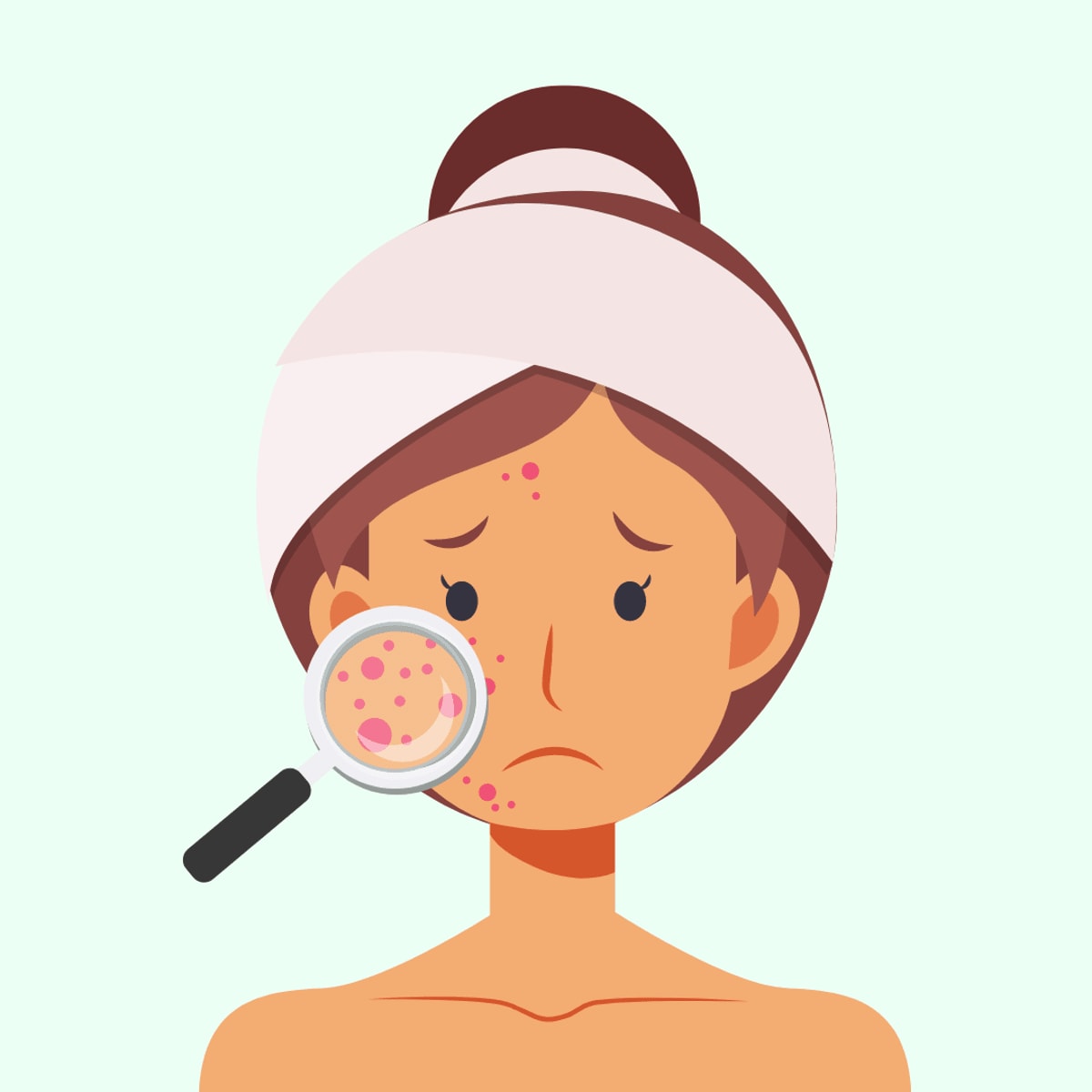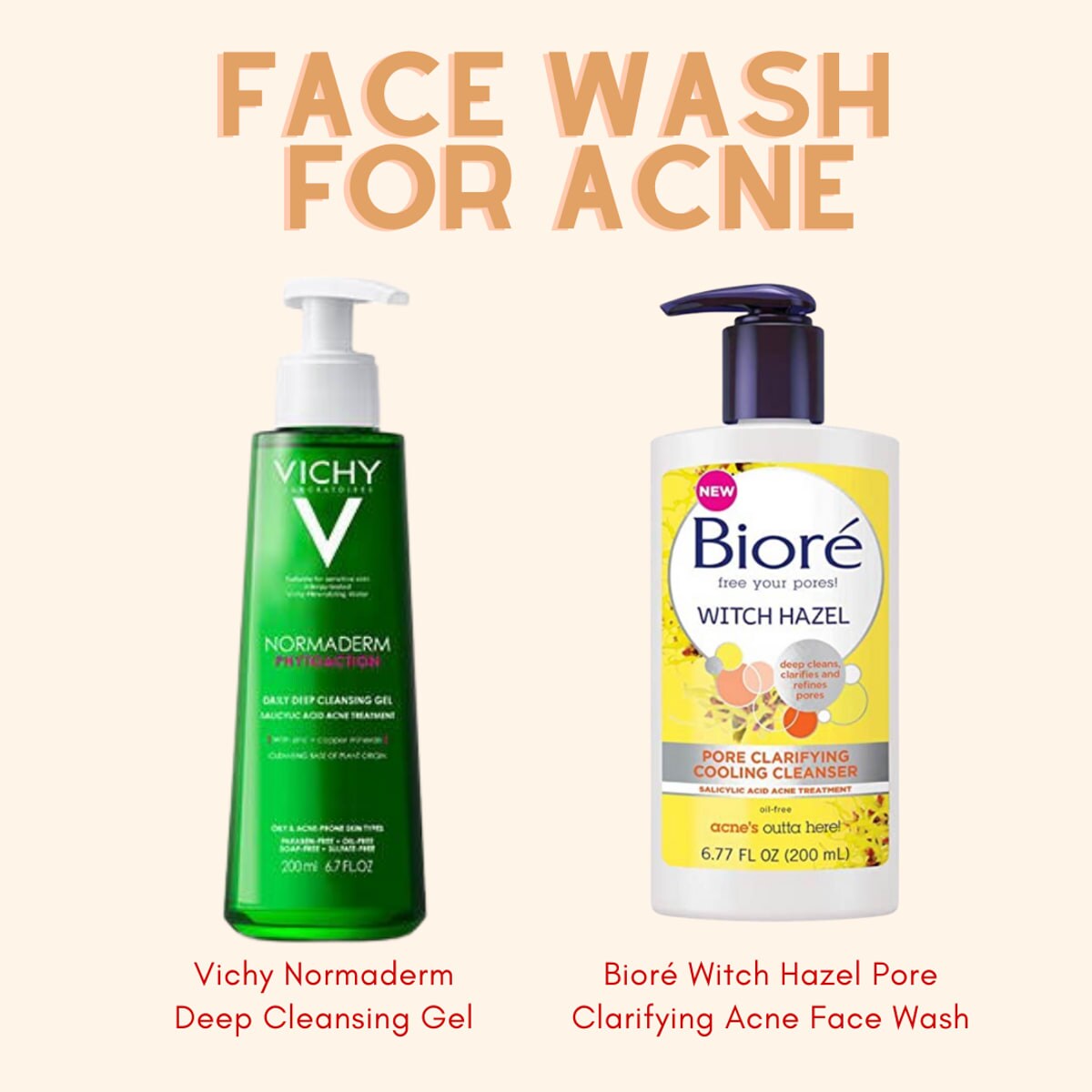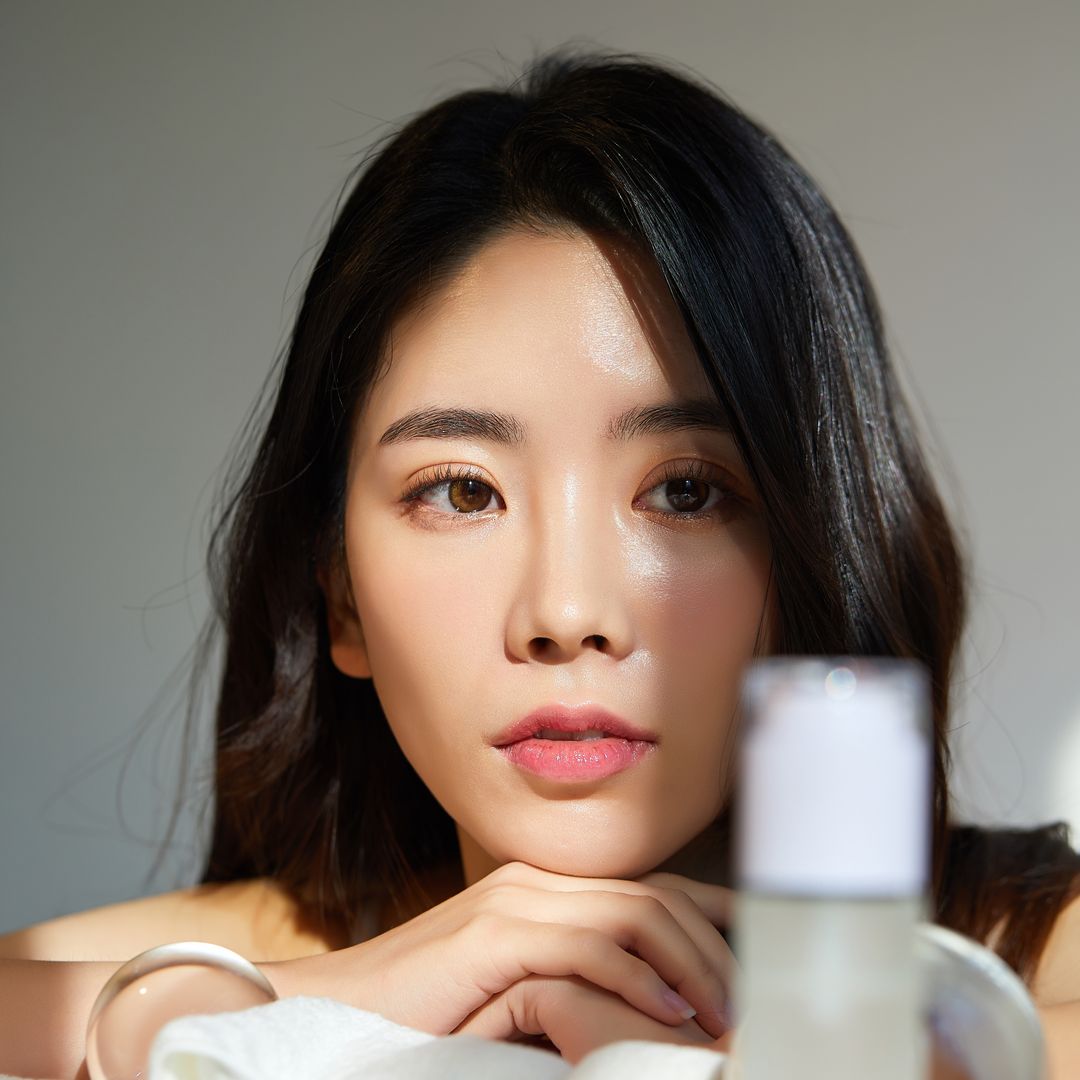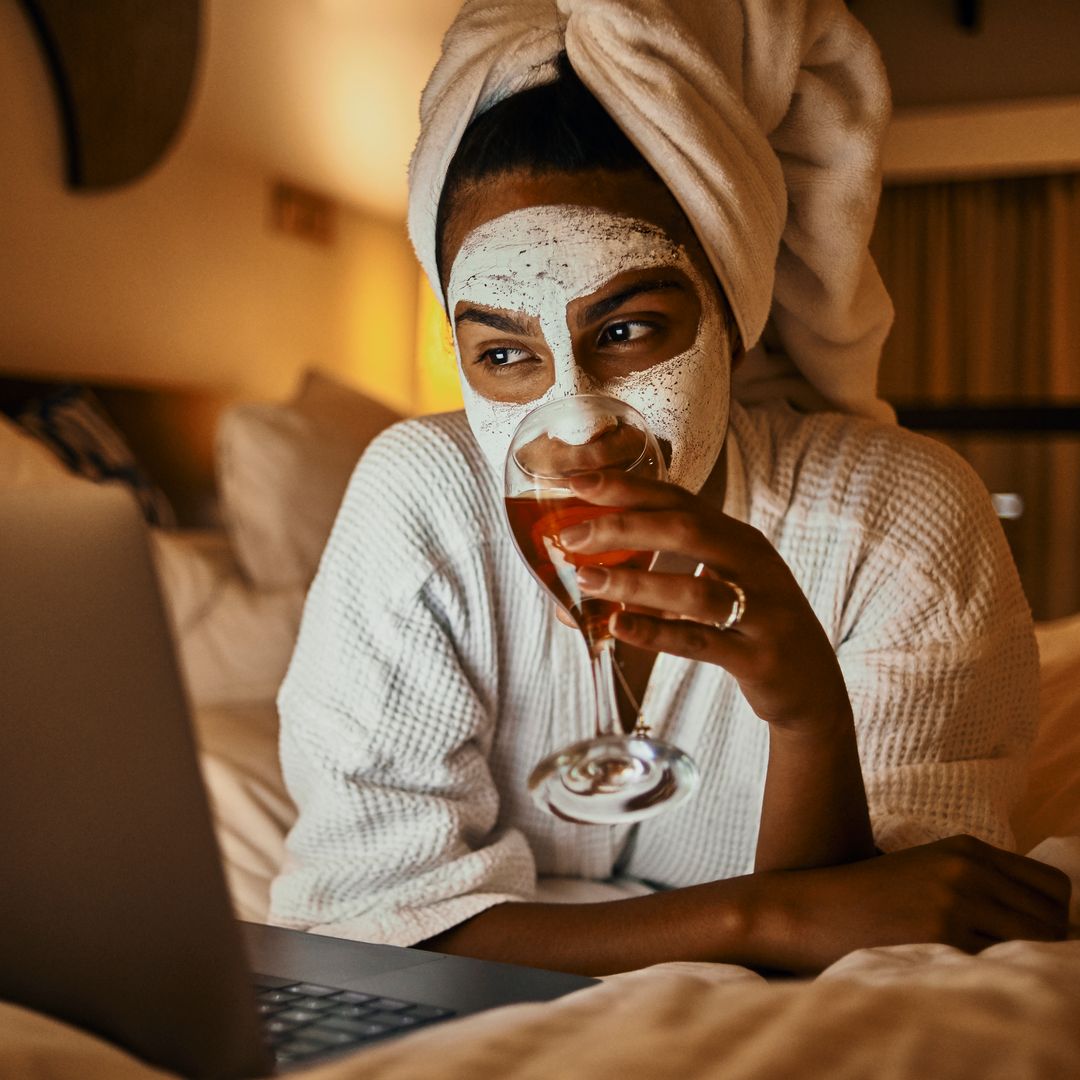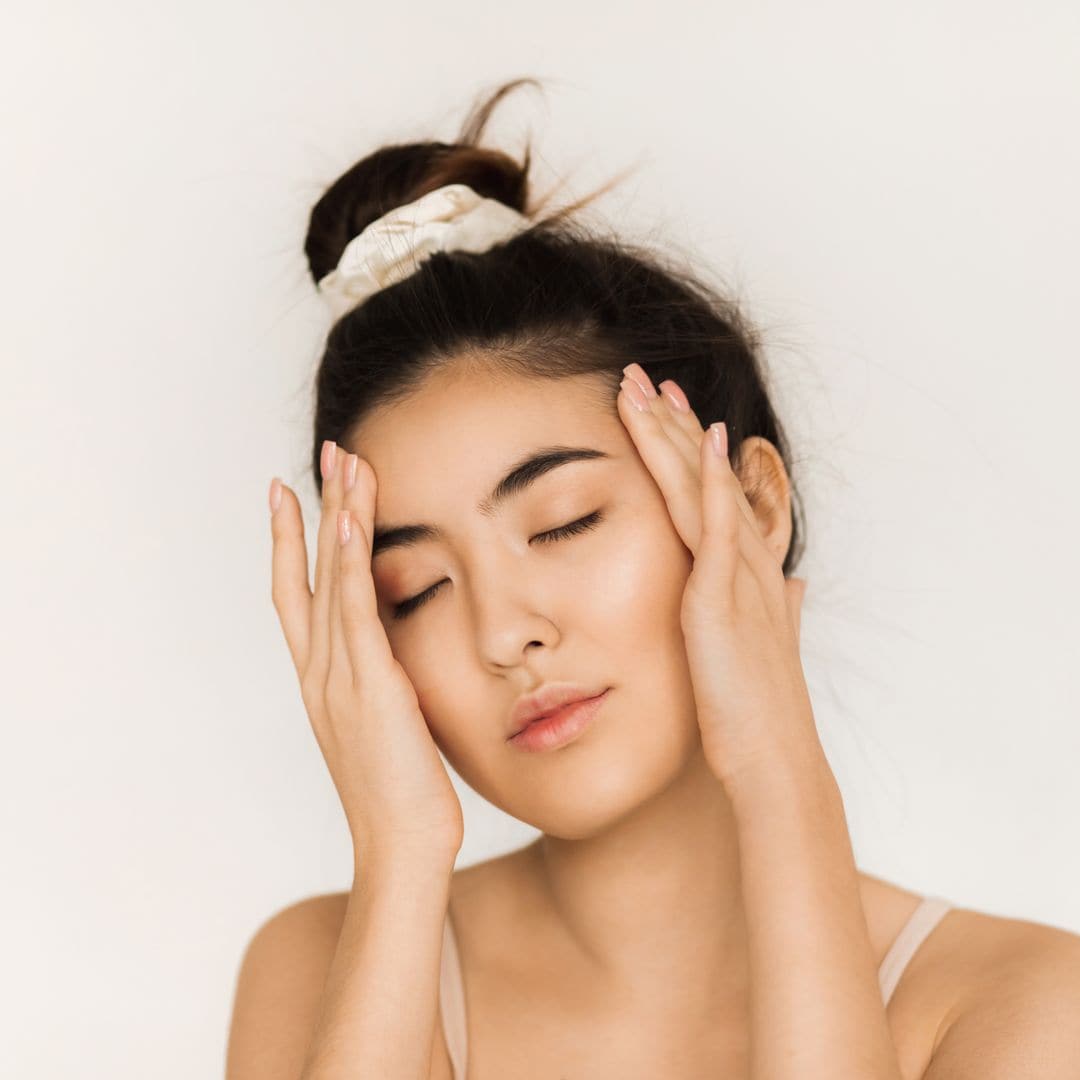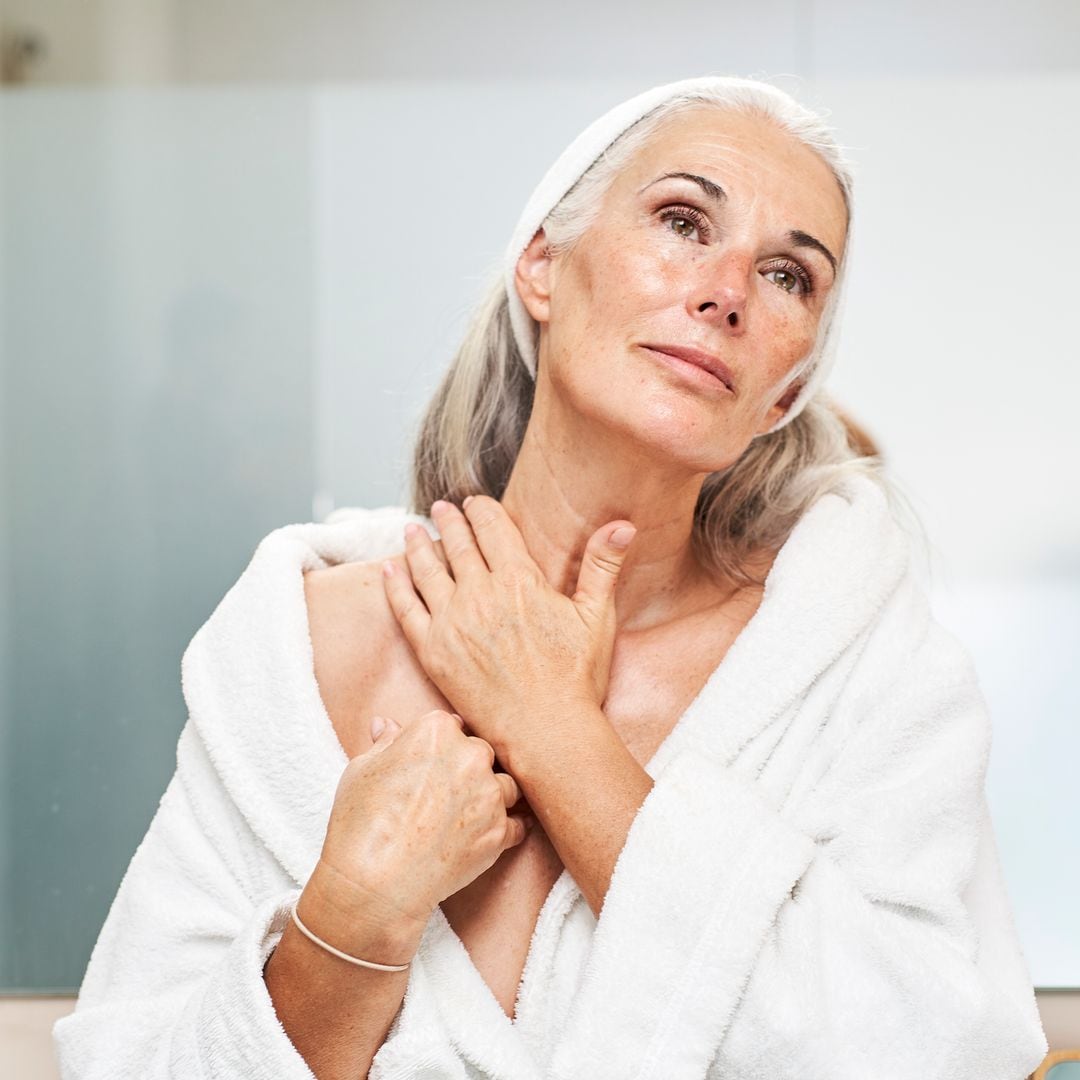Everyone has dealt with acne at a particular time in their lives. And although these bumps are undesirable, they are also avoidable.
Cosmetic Chemist & Celebrity Esthetician Elina Fedotova, who is also the founder of Elina Organics & Spas, shared with HOLA! USA her nine lifestyles, nutrition and skincare tips to prevent acne.
- Nutrition: We start addressing inflammatory skin conditions like acne and rosacea by suggesting dietary changes – reduce or eliminate soft drinks and processed foods because they are packed with different synthetic additives like nitrates, artificial dyes, and flavorings. All those ingredients could stimulate inflammatory processes in the entire body, including the skin. Most people see acne reductions just after they eliminate dairy and sugary foods. If indulging in a desert, I suggest choosing dark chocolate, fruits, or baked goods made from whole grains like oatmeal cookies.
- Vegetables & Fruits: In general, you should increase eating foods that help to clean your skin from the inside out, and those foods include all organically grown greens like celery, cucumber, broccoli, and spinach. Substitute these for pasta or potatoes with a clean source of protein. One of the most healthy skin purifying foods is artichoke. It has a high concentration of silymarin which helps to detoxify and calm our skin. The most helpful way to eat an artichoke is to boil it for 10 minutes with your favorite spices and use the broth at least a cup daily. Organically grown watermelon also helps to purify the body and improve your complexion. Organic berries like red and black currant, blackberries, raspberries, blueberries, pineapple, and papaya will also help your skin.
- Limit Stress: One of the main contributors to acne is stress. Cortisol and other stress hormones intoxicate our bodies and could damage all aspects of our health, including the skin.
- Sleep: Generally, good sleep is essential in ensuring the body produces all necessary hormones for healthy cellular function. We need to make sure we are not going to bed too late and to make sure we are not sleeping in a room with a working computer and TV screens, and EMF emitting devices. I also would suggest having a cup of relaxing herbal tea with rose, chamomile, or valerian root. It helps you to relax and calm down to have a restful sleep.
- Skincare Routine: It is vital to have a healthy skin care regimen that includes cleansing products that can remove excessive amounts of oil and pollutants without damaging your skin’s protective barrier. I would suggest avoiding ingredients with SLS and using sulfate-free cleansing lotions. I also would not recommend using bar soap for the acne-prone complexion. If for some reason, you cannot find a natural and effective cleansing lotion, you can simply substitute it by mixing organic kefir with a little bit of baking soda and cleanse your skin with that solution. The baking soda will absorb excess oil and impurities. Kefir will help to balance the skin’s microbiome.
- Skin Hydration: We all heard that the skin needs to be hydrated, but often people mistake hydration with emollience and use oil-based products on their skin as a moisturizer. I would never suggest doing that for acne or rosacea-prone complexion because it can contribute to more breakouts and redness. It is imperative to use special treatment serums with ingredients like salicylic acid extracted from willow bark, herbal extracts of burdock, dandelion, red clover, peppermint, and turmeric essential oils, tea tree, and yarrow. They are all helpful for problem complexion.
- Makeup/Beauty Routine: It is crucial to ensure that after using a healthy skin care regimen, you do not poison it with conventional makeup based on talcum and silicone. My advice is that if you are using foundation, it should be water-based with zinc oxide as the primary pigment that protects our skin from sun damage and has healing anti-antimicrobial effects on the skin. Crashed pearls and Zinc oxide-based makeup powders would be the best choice. Avoid silicone-based ingredients like dimethicone or Cyclomethicone in your makeup because they act as a plastic wrap over your skin, not allowing it to breathe or absorb moisture from the air, and can contribute to more inflammation. Look for ingredients like pearl powder, sink oxide, sunflower phospholipids, herbal extracts, and essential oils.
- Limit Sun Exposure: Many people with acne-prone complexion are addicted to sun exposure and tanning. UV rays have an antibacterial effect on the skin and help dry blemishes and reduce oil. Tan also helps hide scarring and redness, but it is a very temporary benefit because continuous sun exposure will lead to premature skin aging, discolorations, and even skin cancer. I can’t say that sun exposure contributes to acne; it does not. It can even help for a short time, but I do not suggest using it as an acne therapy because it is a dangerous habit. Make sure your skin is protected with a zinc oxide-based sunscreen that contains pearl powder, which helps to keep moisture in the skin and absorb excessive amounts of oil from the pores.
- Smoking Habits: One of the main functions of the skin is elimination. Our sweat and oil glands release toxins from the body through the pores. So, if we put more toxins into our system, like smoking a cigarette, more toxins will come out of our pores, worsening our skin.
,type=downsize)

